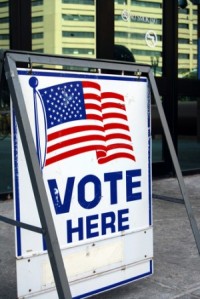5th Circuit says strict Texas voter ID law violates Voting Rights Act

Image from Shutterstock.
In what was described by the Dallas Morning News’ Trail Blazers Blog as a “narrow win” for opponents of a Texas voter identification law, a federal appeals court on Wednesday agreed with a federal district court judge that the law has a discriminatory impact and violates the U.S. Voting Rights Act.
However, the New Orleans-based 5th U.S. Circuit Court of Appeals disagreed with a Corpus Christi district court ruling (PDF) last year that the 2011 law was enacted by a Republican majority with a discriminatory intent and that it constitutes a poll tax, according to the Associated Press, the Houston Chronicle and the Houston Press. Hence, the appellate panel sent the case back to federal district court to make additional findings concerning the scope of the violation.
It appears that the district court may wind up crafting an alternative solution to address the legislative majority’s concern about ballot fraud and require voters to identify themselves without unduly discouraging them from casting legitimate ballots.
“Simply reverting to the system in place before SB 14’s passage would not fully respect these policy choices—it would allow voters to cast ballots after presenting less secure forms of identification like utility bills, bank statements, or paychecks,” the appeals court wrote in its unanimous opinion (PDF) today.
The state’s Republican governor, Greg Abbott, indicated that the state may pursue a further appeal, if need be. Options would include a request for an en banc 5th Circuit review or a petition to the U.S. Supreme Court.
“In light of ongoing voter fraud, it is imperative that Texas has a voter ID law that prevents cheating at the ballot box,” Abbott said. “Texas will continue to fight for its voter ID requirement to ensure the integrity of elections in the Lone Star State.”
Related coverage:
ABAJournal.com: “DOJ to sue Texas over voter ID law”
ABAJournal.com: “5th Circuit reinstates strict Texas voter ID law”
See also:
New York Times (reg. req.): “Voting Rights Legacy of the ’60s Heads to Court as North Carolina Law Is Tested”



